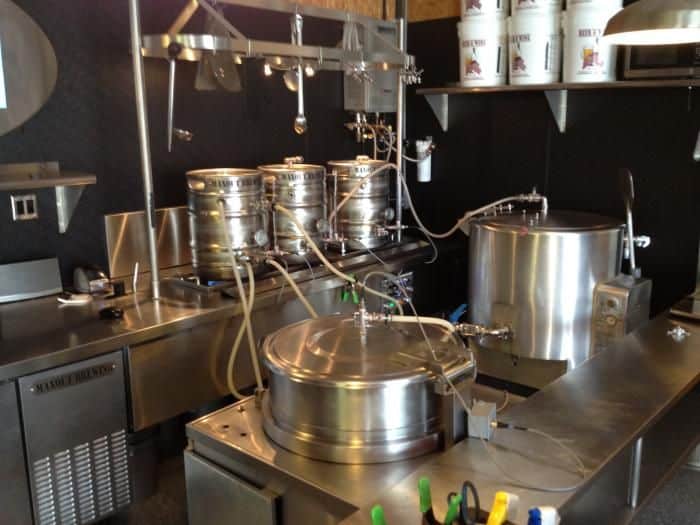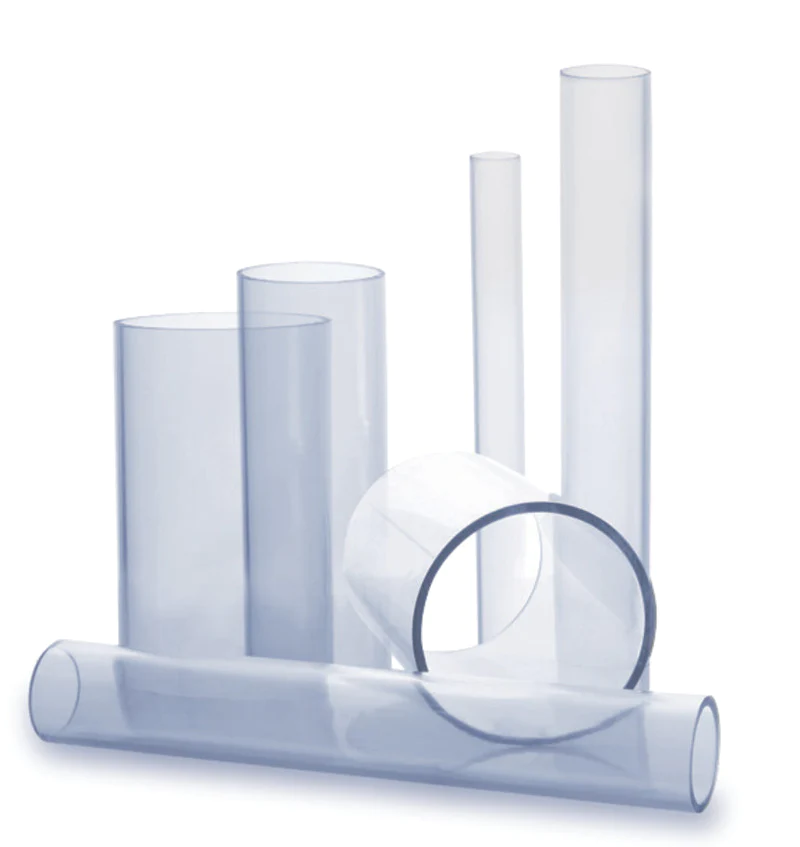What is Tube?
Tubes, often made from metal, glass, rubber, or plastic, have versatile applications across various industries. They are employed for fluid transportation in the automotive, oil and gas, and construction sectors. Additionally, tubes are used as structural supports in buildings, bridges, and other such structures. They are also found commonly in medical applications like intravenous lines, catheters, and endotracheal tubes. Previously, tubes were an integral component of electronic devices like radios and televisions, but have now been largely replaced by transistors. In the packaging industry, flexible plastic tubes are often used for creams, ointments, and toothpaste. Tubes also find application in heat exchangers for efficient heat transfer between fluids, such as in power plants, chemical processing, and HVAC systems. Finally, tubes for recreation include inflatable pool toys, and inner tubes for floating and tubing down snow-covered slopes.
Tube systems have gained popularity in the brewing industry due to their efficiency, hygiene, temperature control, scalability, and ability to reduce oxidation. The smooth transfer of liquids between the various stages of the brewing process is facilitated by tubes, which minimizes manual handling, saving time and labor costs.

Maintaining a clean and sterile environment during brewing reduces the risk of contamination, and since tubes can be easily sanitized, they are the perfect solution for achieving this.
Additionally, temperature regulation has a critical impact on the brewing process, and tube systems can easily be adapted to include temperature control devices, thereby providing precision throughout the process. Notably, tube systems are flexible and can be expanded or reconfigured to respond to scaling production. Reduced oxidation is an additional benefit of using tube systems, as the closed system minimizes the exposure of liquids to air, keeping the final product fresh and flavorful. Among the choice, silicone tube typically stands out.
What is Silicone Tube?
At NEWTOP Injection, we are experts in manufacturing premium quality rubber products including silicone rubber tubing, prized for its flexibility and heat tolerance. Our food-grade tubing is highly sought-after and has optimal resistance to UV radiation, ozone degradation, and weather conditions, making it the ideal choice for the aerospace and electrical industries. Our expertise ensures that we can produce silicone tubes to a variety of professional specifications that meet your exact application requirements.
What is PVC Tube?
Polyvinyl Chloride (PVC) tubing is a type of plastic tubing crafted from a synthetic material referred to as polyvinyl chloride. It is widely prevalent in various industries due to its durability, flexible nature, and resistance to corrosive materials, abrasion, and chemicals. PVC tubes remain a popular choice for brewers due to numerous reasons. PVC tubes do not cost much, making them an optimal choice for most homebrewers and small-scale commercial brewers. Also, PVC tubes are easy to manipulate and highly flexible, making it possible to install and remove them from different containers.

PVC remains one of the ideal choices for brewing due to its high resistance to corrosive materials such as acids and alkalis, which are mandatory for cleaning and ensuring optimal sanitization. The durability of PVC tubes helps brewers save on costs, as they can serve multiple purposes for prolonged periods. PVC tubing provides high-quality insulation, ensuring optimal fermentation by preventing heat loss during the brewing process. Brewers should only use food-grade PVC tubing since non-food-grade PVC tubes can cause chemical leaching, leading to undesired taste and diminished brew safety. Therefore, it’s essential to ensure that you use food-grade PVC tubes for any brewing applications.
What Are the Differences Between Silicone Tubes and PVC Tubes for Brewing?
Silicone tubing and PVC tubing are two of the most popular choices for brewing applications, however, they differ significantly in multiple aspects that might affect your choice. This article deliberates the most significant differences between the two:
Temperature resistance: With a temperature range from -100°F to 500°F (-73°C to 260°C), silicone tubing can handle a much broader range of temperatures than PVC tubing. Therefore, it is appropriate for transferring both cold and hot liquids. PVC tubing, on the other hand, is generally rated for temperatures between 25°F to 150°F (-4°C to 65°C) and may not be suitable for high-temperature purposes like transferring boiling wort.
Flexibility: In comparison to PVC tubing, silicone tubing is exceedingly flexible, making it much simpler to handle and maneuver in tight spaces. Its flexibility allows silicone tubing to hold its form and solidity when twisted or bent, reducing the risk of kinks that can obstruct the flow of liquid.
Chemical resistance: Both silicone and PVC tubing provide adequate resistance to the commonly used chemicals in brewing like cleaning solutions and sanitizers. Nevertheless, PVC may be less resistant to particular solvents and oils that can cause the tubing to degrade over time.
Transparency: PVC tubing is generally transparent, allowing visibility of the liquid’s movement throughout the brewing process. Although silicone tubing is often translucent or opaque, making it somewhat arduous to monitor the contents.
Taste and odor: Silicone tubing is an inert material, as a result, liquids passing through it are not tainted by any taste or smell. However, PVC tubing may release small amounts of plasticizers into the liquid that might disturb the taste and quality of your brew.
Cost: When compared to silicone tubing, PVC tubing is less expensive. However, when considering the durability, temperature resistance, and potential impact on taste, some professional brewers may find the utilization of silicone tubing worth the expense.
Silicone Tube Industrial Applications
Besides brewing, silicone tubes appear in other industries.
• Medical
In the medical industry, medical-grade silicone rubber is used for surgical tubing and drains, respirators, CPAPs, and peristaltic pumps, due to its hypoallergenic, non-toxic, and chemical-resistant nature. In the medical industry, surgical tubing, drains, respirators, CPAPs, and peristaltic pumps are often made from medical-grade silicone rubber due to their chemical resistance, non-toxic, and hypoallergenic nature. Silicone rubber components are highly valued in analytical instrumentation for their sterility and flexibility.
• Automotive
In the automotive and electronic industries, silicone’s outstanding electrical insulation properties make it an essential material for insulating components in automotive enclosures and electronics. Flexible, heat and chemical-resistant silicone tubing are perfect for food and dairy processing applications, including beverage dispensing, where sterile conditions are necessary. Silicone rubber’s non-toxic characteristics and smooth surface make it ideal for water filtration and purification systems.
• Aerospace
The aerospace industry frequently employs silicone rubber tubing in climate control systems and fluid conveyance systems due to its high tensile strength, temperature resistance, and flexibility. Silicone rubber is also commonly used for vehicle and aircraft vacuum seals.
PVC Tube Industrial Applications
olyvinyl Chloride (PVC) tubes find extensive usage in diverse industrial applications due to their durability, flexibility, and resistance to chemicals, corrosion, and abrasion. Discussed below are some of the most common industrial applications of PVC tubes:
Water Supply and Distribution: For residential, commercial, and agricultural purposes, PVC tubes are a popular choice for water supply systems. Their corrosion resistance and capacity to handle high pressure facilitates the transportation of drinking water, irrigation, and wastewater.
Chemical Processing: In chemical processing plants, PVC tubes are ideal conduit choices due to their chemical resistivity towards a range of acids, alkalis, and solvents. They are versatile, serving in the transfer of chemicals and manufacturing various chemical products.
Electrical Conduit: PVC tubes are an excellent choice for electrical conduit systems as they are non-conductive and have high fire resistance ratings. They help protect electrical wires and cables from damage and assist in conserving electrical installations’ integrity.
Sewage and Drainage Systems: PVC tubes are notable fixtures in sewage and drainage systems. Their smooth internal surfaces, corrosion resistance, and easy installations make them ideal for transporting stormwater and wastewater away from residential and commercial establishments.
Food and Beverage Industry: When transferring liquids such as milk, juices, and other beverages, PVC tubes are the preferred option in the food and beverage industry. With superior microbial growth resistance and maintenance of product quality, they are ideal choices.
Medical and Pharmaceutical Applications: PVC tubes are commonly used in various pharmaceutical and medical applications, including intravenous tubing, dialysis equipment, and drug delivery systems. Their flexibility, biocompatibility, and transparency make them popular in sensitive applications.
Construction and Infrastructure: PVC tubes are fundamental in construction projects, such as underground gas and water pipes, and drainage and stormwater management in road and bridge constructions.
Pneumatic and Hydraulic Systems: PVC tubes’ flexibility and durability make them popular choices in pneumatic and hydraulic systems and for transportation purposes of air, water, and other fluids.
Whether you are a brewing factory that needs food-grade silicone tubing or an engineer seeking the best tubing material for your project, at NEWTOP, we have the manufacturing expertise to custom design and create silicone rubber tubing to your specifications. We pride ourselves on our ability to quickly and accurately manufacture rubber components to our customer’s individual needs, regardless of the size of the job. Our silicone rubber materials are second to none and easily customized to meet your particular needs. To learn more about our custom silicone rubber tubing, request a quote today.
